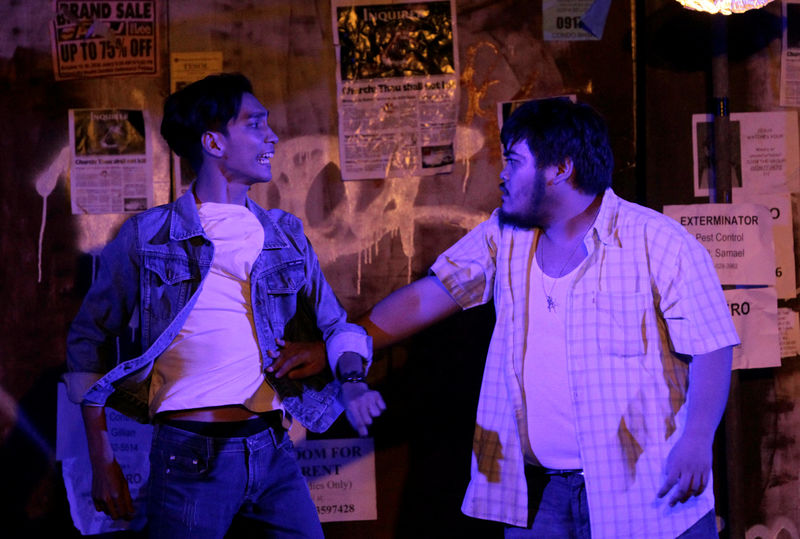MANILA (Reuters) - An unidentified gunman shoots dead a Filipino man. A reporter looks anxious as he arrives at the scene and watches a policeman inspect the body.
It's the kind of event that happens daily in the Philippines as President Rodrigo Duterte's war on drugs continues unabated, with more than 2,400 people killed in the first four months since he took office on June 30.
This time, no one is hurt. The incident is a reenactment by a Manila theatre group, a portrayal of a spate of vigilante killings that have put the Philippines in the international spotlight.
Lead actress Roseball Toledo said the play aims to raise awareness about human rights and due process.
"Life is a basic human right and if we have a problem with criminals, drug users or rapists or murderers, that's what the law is for," she said.
"That's what courts are for. It's not right to end the life of someone just because you don't see them doing anything good with their life."
It's the kind of opinion that strikes a raw nerve with Duterte, a former prosecutor and self-styled antidote to rampant methamphetamine usage he says is destroying his country.
He has lashed out with profanities at the United Nations, European Union, United States and human rights groups that have criticised his drug war and voiced concern about possible extrajudicial killings.
Duterte's promise to rid the country of crime and drugs won him a May election by a huge margin and his decisive, ruthless approach has proved popular among Filipinos.
Police say most of those killed were narcotics suspects shot dead after resisting arrest during operations by police and counter-narcotics agents.
Other killings, police say, are carried out by rival gangs or vigilantes, the mysterious and largely unexplained component that the Manila play focuses on.
Duterte strongly denies that assassins are in cahoots with police to carry out murder. He does not condone vigilantism and has even said he encourages it.
Directed by university student Nicole Lorenzo, the play centres on an assassin who claims to only kill criminals, and a reporter in a back alley where the assailant leaves the corpses.
"The parallelism here is the supposedly righteous killing of criminals... the character only kills those who have wronged others," Lorenzo said.

"Those being killed now, by whoever is doing this, are those who are believed to have wronged society with their drug use."